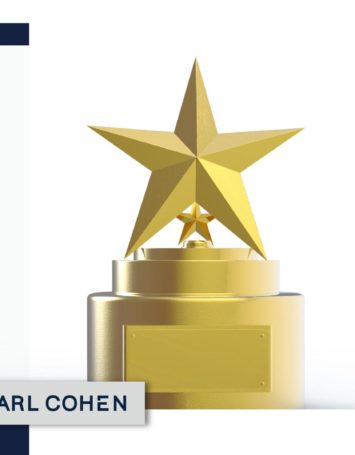Article by Clyde Shuman
The U.S. Court of Appeals for the Federal Circuit ruled Wednesday that the U.S. Patent and Trademark Office exceeded its authority by establishing regulations limiting the amount of time added to the life of patents to account for delays during the application process, which the Court said “unfairly penalize applicants.”
In Supernus Pharmaceuticals Inc. v. Iancu, case number 17-1357, the court reversed a grant of summary judgment by the Eastern District of Virginia. The lower court held that the PTO correctly calculated the patent term adjustment (“PTA”) for Supernus’ patent directed to delivering drugs through osmosis. The Federal Circuit held that the PTA in this case “went beyond the period during which the applicant failed to undertake reasonable efforts and thereby exceeded the limitations set by the [ ] statute, 35 U.S.C. § 154.
Supernus’ patent is used in the hypertension medication Orenitram and is set to expire in 2029.
PTA allows a patentee to lengthen the term of a patent to account for PTO-caused delays during prosecution, but limits the extension where various types of delay overlap, or where delay is caused by the applicant (e.g., seeking an extension of time to respond to an Office Action) or where the applicant “fail[s] to engage in reasonable efforts to conclude prosecution.” Here, Supernus was seeking to extend its patent term by 546 days. It argued that a PTO regulation that limits available adjustments in some situations was contrary to the statute. The Federal Circuit agreed, ruling that “[t]he [PTO’s] interpretation of the [PTA] statute would unfairly penalize applicants, fail to incentivize applicants not to delay, and fail to protect applicants’ full patent terms.”
In this case the PTO reduced 2,321 days of PTO delay by 868 days for applicant delay. Of those, 646 days were assessed for the period between the filing of a Request for Continued Examination (“RCE”) and the submission of an IDS. The PTO rejected the RCE and, based on Federal Circuit precedent, determined that the submission of an IDS following a restriction/election requirement, as here, reduced PTA.
Supernus appealed to the Eastern District of Virginia and moved for summary judgment on the grounds that the regulation relied on by the PTO was arbitrary, capricious, and contrary to the PTA statute. Supernus also argued that it was entitled to at least 546 of the 646-day period of applicant delay, the period between its filing of the RCE and the European Patent Office Notice of Opposition to a counterpart application.
The district court granted summary judgment to the PTO, holding that it did not err in the PTA calculation and that the Federal Circuit’s Gilead decision foreclosed Supernus’ arbitrary, etc., arguments.
On appeal, the Federal Circuit held that provisions in the PTA regulations that permit reduction of PTA for time during which there was nothing the applicant could actually do to conclude prosecution, was inconsistent with the statute.
The Court distinguished its decision in Gilead, saying “this case is not about whether efforts taken by Supernus, or those it could have taken, resulted in actual or potential delay” and finding the “precise question” in Gilead–“whether a failure to engage in reasonable efforts requires conduct that actually causes delay”—differed from the precise question here, namely, whether the PTO may reduce PTA by a period that exceeds the “time during which the applicant failed to engage in reasonable efforts to conclude prosecution.” The Court reversed the lower court’s grant of summary judgment to the PTO based on Gilead.
Analyzing the PTA and its concomitant regulations, the Court said:
PTA cannot be reduced by a period of time during which there is no identifiable effort in which the applicant could have engaged to conclude prosecution because such time would not be “equal to” and would instead exceed the time during which an applicant failed to engage in reasonable efforts.
The Court continued:
The USPTO cannot, therefore, count as applicant delay any period of time during which there were no efforts in which the applicant could have engaged to conclude prosecution of the patent.
A period of time including no identifiable efforts that could have been undertaken cannot be “equal to” the period of failure to undertake reasonable efforts under the terms of the statute. To conclude otherwise renders the PTA statute’s “reasonable efforts” language superfluous.



